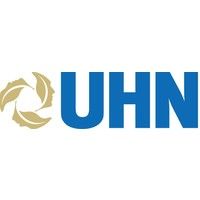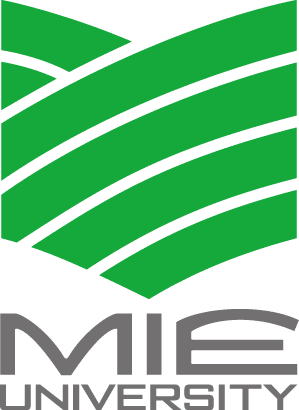预约演示
更新于:2026-02-27
Mipetresgene autoleucel
迈基仑赛
更新于:2026-02-27
概要
基本信息
原研机构 |
非在研机构- |
最高研发阶段临床3期 |
首次获批日期- |
最高研发阶段(中国)- |
特殊审评- |
登录后查看时间轴
结构/序列
Sequence Code 1277315330

来源: *****
关联
4
项与 迈基仑赛 相关的临床试验NCT07174427
Multi-center Study of TBI-1301 (INN: Mipetresgene Autoleucel; Mip-cel) in Patients With NY-ESO-1 Positive Synovial Sarcoma
The purpose of this study is to verify the safety and the efficacy of TBI-1301 for NY-ESO-1 expressing synovial sarcoma when administered following cyclophosphamide/fludarabine pre-treatment.
开始日期2026-01-05 |
申办/合作机构 |
NCT03250325
Multi-center Phase I/II Study of NY-ESO-1 T Cell Receptor Gene Transferred T Lymphocytes in Patients with Synovial Sarcoma
The purpose of this study is to evaluate the safety and the efficacy of TBI-1301 for NY-ESO-1 expressing synovial sarcoma when administered following cyclophosphamide pre-treatment.
开始日期2017-09-20 |
申办/合作机构 |
NCT02869217
Phase Ib Study of TBI-1301 (NY-ESO-1 Specific TCR Gene Transduced Autologous T Lymphocytes) in Patients With Solid Tumors
The target populations for this phase I study with TBI-1301 are patients with advanced solid tumors. Patients' tumors will be required to express NY-ESO-1, which include but is not limited to ovarian cancer, synovial sarcoma, esophageal cancer, lung cancer, bladder cancer, liver cancer, and malignant melanoma. Patients must be positive for HLA-A*02:01 or HLA-A*02:06 and the patient's tumor tissue must be positive for NY-ESO-1 antigen expression. The study will take the subject's T cells, which are a natural type of immune cell in the blood, and send them to a laboratory to be modified. The changed T cells used in this study will be the subject's own T cells that have been genetically changed with the aim of attacking and destroying cancer cells.
The manufacturing of T cells takes about 1 month to complete. The T cells will be given back to the subject through an intravenous infusion. The purpose of this study is to test the safety of genetically changed T cells and find out what effects, if any, they have in subjects with advanced solid tumors.
The purpose of this study is to evaluate the safety profile of TBI-1301, to determine the recommended phase 2 (RP2D) dose of TBI-1301 when administered following cyclophosphamide and fludarabine pre-treatment, to evaluate the safety of repeat dosing of TBI-1301, to assess the presence/absence of RCR appearance after TBI-1301 infusion, to assess the presence or absence of clonality by LAM-PCR, and to evaluate evidence of efficacy of TBI-1301 using RECIST v1.1.
The manufacturing of T cells takes about 1 month to complete. The T cells will be given back to the subject through an intravenous infusion. The purpose of this study is to test the safety of genetically changed T cells and find out what effects, if any, they have in subjects with advanced solid tumors.
The purpose of this study is to evaluate the safety profile of TBI-1301, to determine the recommended phase 2 (RP2D) dose of TBI-1301 when administered following cyclophosphamide and fludarabine pre-treatment, to evaluate the safety of repeat dosing of TBI-1301, to assess the presence/absence of RCR appearance after TBI-1301 infusion, to assess the presence or absence of clonality by LAM-PCR, and to evaluate evidence of efficacy of TBI-1301 using RECIST v1.1.
开始日期2016-09-01 |
申办/合作机构 |
100 项与 迈基仑赛 相关的临床结果
登录后查看更多信息
100 项与 迈基仑赛 相关的转化医学
登录后查看更多信息
100 项与 迈基仑赛 相关的专利(医药)
登录后查看更多信息
3
项与 迈基仑赛 相关的文献(医药)2023-12-15·Clinical cancer research : an official journal of the American Association for Cancer Research
Safety and Efficacy of NY-ESO-1 Antigen-Specific T-Cell Receptor Gene-Transduced T Lymphocytes in Patients with Synovial Sarcoma: A Phase I/II Clinical Trial
Article
作者: Kawai, Akira ; Kakunaga, Shigeki ; Endo, Makoto ; Takada, Kohichi ; Emori, Makoto ; Kato, Koji ; Kitano, Shigehisa ; Sato, Eiichi ; Kageyama, Shinichi ; Matsumine, Akihiko ; Tanaka, Shinya ; Iwata, Shintaro ; Ueda, Takafumi ; Morino, Kunihiko ; Nakamura, Tomoki ; Miyahara, Yoshihiro ; Matsumoto, Yoshihiro ; Takahashi, Shuichi ; Ishihara, Mikiya ; Matsuo, Fujio
Abstract:
Purpose::
To determine, for patients with advanced or recurrent synovial sarcoma (SS) not suitable for surgical resection and resistant to anthracycline, the safety and efficacy of the infusion of autologous T lymphocytes expressing NY-ESO-1 antigen-specific T-cell receptor (TCR) gene and siRNA to inhibit the expression of endogenous TCR (product code: TBI-1301).
Patients and Methods::
Eligible Japanese patients (HLA-A*02:01 or *02:06, NY-ESO-1-positive tumor expression) received cyclophosphamide 750 mg/m2 on days −3 and −2 (induction period) followed by a single dose of 5×109 (±30%) TBI-1301 cells as a divided infusion on days 0 and 1 (treatment period). Primary endpoints were safety-related (phase I) and efficacy-related [objective response rate (ORR) by RECIST v1.1/immune-related RECIST (irRECIST); phase II]. Safety- and efficacy-related secondary endpoints were considered in both phase I/II parts.
Results::
For the full analysis set (N = 8; phase I, n = 3; phase II, n = 5), the ORR was 50.0% (95% confidence interval, 15.7–84.3) with best overall partial response in four of eight patients according to RECIST v1.1/irRECIST. All patients experienced adverse events and seven of eight patients (87.5%) had adverse drug reactions, but no deaths were attributed to adverse events. Cytokine release syndrome occurred in four of eight patients (50.0%), but all cases recovered with prespecified treatment. Immune effector cell-associated neurotoxicity syndrome, replication-competent retrovirus, and lymphocyte clonality were absent.
Conclusions::
Adoptive immunotherapy with TBI-1301 to selectively target NY-ESO-1-positive tumor cells appears to be a promising strategy for the treatment of advanced or recurrent SS with acceptable toxicity.
2022-06-01·Journal for immunotherapy of cancer
NY-ESO-1-specific redirected T cells with endogenous TCR knockdown mediate tumor response and cytokine release syndrome
Article
作者: Newell, Evan ; Mineno, Junichi ; Kairi, Muhammad Faris ; Sato, Eiichi ; Kitano, Shigehisa ; Shiku, Hiroshi ; Funakoshi, Takeru ; Miyahara, Yoshihiro ; Kojima, Takashi ; Ikeda, Hiroaki ; Mishima, Hideyuki ; Yamamoto, Noboru ; Kageyama, Shinichi ; Fehlings, Michael ; Watanabe, Takashi ; Simoni, Yannick ; Sasada, Tetsuro ; Tomura, Daisuke ; Nukaya, Ikuei ; Diem Hoang Nguyen, Phuong ; Chono, Hideto ; Nardin, Alessandra ; Kato, Hidefumi ; Okamoto, Sachiko ; Ishihara, Mikiya ; Hattori, Hiroyoshi
Background:
Because of the shortage of ideal cell surface antigens, the development of T-cell receptor (TCR)-engineered T cells (TCR-T) that target intracellular antigens such as NY-ESO-1 is a promising approach for treating patients with solid tumors. However, endogenous TCRs in vector-transduced T cells have been suggested to impair cell-surface expression of transduced TCR while generating mispaired TCRs that can become self-reactive.
Methods:
We conducted a first-in-human phase I clinical trial with the TCR-transduced T-cell product (TBI-1301) in patients with NY-ESO-1-expressing solid tumors. In manufacturing TCR-T cells, we used a novel affinity-enhanced NY-ESO-1-specific TCR that was transduced by a retroviral vector that enables siRNA (small interfering RNA)-mediated silencing of endogenous TCR. The patients were divided into two cohorts. Cohort 1 was given a dose of 5×108 cells (whole cells including TCR-T cells) preconditioned with 1500 mg/m2 cyclophosphamide. Cohort 2 was given 5× 109 cells preconditioned with 1500 mg/m2 cyclophosphamide.
Results:
In vitro study showed that both the CD8+ and CD4+ T fractions of TCR-T cells exhibited cytotoxic effects against NY-ESO-1-expressing tumor cells. Three patients and six patients were allocated to cohort 1 and cohort 2, respectively. Three of the six patients who received 5×109 cells showed tumor response, while three patients developed early-onset cytokine release syndrome (CRS). One of the patients developed a grade 3 lung injury associated with the infiltration of the TCR-T cells. No siRNA-related adverse events other than CRS were observed. Cytokines including interleukin 6 I and monocyte chemotactic protein-1/chemokine (C-C motif) ligand (CCL2)increased in the sera of patients with CRS. In vitro analysis showed these cytokines were not secreted from the T cells infused. A significant fraction of the manufactured T cells in patients with CRS was found to express either CD244, CD39, or both at high levels.
Conclusions:
The trial showed that endogenous TCR-silenced and affinity-enhanced NY-ESO-1 TCR-T cells were safely administered except for grade 3 lung injury. The TCR-T cell infusion exhibited significant tumor response and early-onset CRS in patients with tumors that express NY-ESO-1 at high levels. The differentiation properties of the manufactured T cells may be prognostic for TCR-T-related CRS.
Trial registration number:
NCT02366546.
2018-10-01·ANNALS OF ONCOLOGY
Study of TBI-1301 (NY-ESO-1 specific TCR gene transduced autologous T lymphocytes) in patients with solid tumors
Article
作者: Ross, K ; Tanaka, S ; Boross-Harmer, S ; van As, B ; Scheid, L ; Majeed, H ; Fyrsta, M ; Le, M ; Nie, J ; Nguyen, L ; Elston, S ; Saibil, S ; Butler, M O ; Lo, C ; Yam, J ; Sotov, V ; Hirano, N ; Ohashi, P ; Nelles, M ; Bonilla, L
14
项与 迈基仑赛 相关的新闻(医药)2024-07-03
滑膜肉瘤(SS)是一种病理学上具有特殊形态表现的间叶组织恶性肿瘤,约占所有软组织肉瘤的5%-10%。虽名为滑膜肉瘤,但SS并非来源于滑膜,也不分化为滑膜,其来源可能是未分化的间叶组织,并伴有不同程度上皮样分化。组织学上,SS可分为三个类型:单相型(只有一种特征性的细胞,通常为梭形细胞)、双相型(存在两种特征性的细胞,即梭形细胞与上皮细胞,是最为常见的滑膜肉瘤类型)、去分化型(在单相型或双相型的形态学基础上,镜下可见部分区域为未分化多形性或小圆细胞的成分,核分裂相多见)。
SS主要发生在四肢软组织(如足部、膝关节或踝关节),常发生在关节囊和肌腱鞘附近,主要表现为无痛性、逐渐生长的软组织肿块。SS发病机制尚不十分明确,好发于青少年和年轻成人,超90%患者存在染色体异位,18号染色体上的SYT基因与X染色体上的SSX1、SSX2或SSX4融合,形成SYT-SSX融合基因。
由于症状不具有特异性,可能与创伤、肌炎、滑囊炎或肌腱炎等良性疾病重叠,SS早期容易误诊。大多数SS患者诊断时为局部原发,约6%-18%在诊断时存在转移,转移的主要部位为肺、淋巴结和骨。
SS治疗手段包括手术、放疗和药物治疗,其中手术是SS的首选治疗方法,但只能用于局限性SS。放疗是NCCN指南推荐的SS术后标准辅助治疗。药物治疗上,SS一线治疗方案是蒽环类及异环磷酰胺,此外,一些获批治疗软组织肉瘤的药物也可以用于治疗SS,如血小板衍生生长因子(PDGF)受体抑制剂Lartruvo(Olaratumab,奥拉单抗)、多靶点酪氨酸激酶抑制剂Votrient(Pazopanib,帕唑帕尼)和安罗替尼、TRK抑制剂Vitrakvi(larotrectinib,拉罗替尼)。
Lartruvo于2016年被FDA批准联合多柔比星用于不适合根治性放射治疗或手术但适合蒽环类治疗的成人晚期软组织肉瘤(STS)。
Votrient和安罗替尼均属于多靶点酪氨酸激酶抑制剂,具有抗肿瘤血管生成和抑制肿瘤生长的作用,其中Votrient于2012年被FDA批准用于治疗曾接受过化疗的晚期STS,安罗替尼于2019年被NMPA批准单药治疗既往至少接受过含蒽环类化疗方案治疗后进展或复发的晚期STS。Vitrakvi是全球获批的首个TRK抑制剂,2018年被FDA批准用于治疗携带NTRK基因融合的实体肿瘤患者。
整体来看,SS治疗药物有限,且缺乏专门针对SS的新疗法。不过,目前全球还有几款在研SS新疗法,详见下表。其中Afami-cel进展较快,其治疗晚期SS的BLA正在美国接受优先审查,PDUFA日期为2024年8月4日。
Afami-cel(Afamitresgene autoleucel)是一种靶向黑色素瘤相关抗原4(MAGE-A4)的TCR-T细胞疗法,其从患者体内提取T细胞并使用慢病毒载体进行基因工程改造,表达靶向HLA-A*02呈递的MAGE-A4 230-239 GVYDGREHTV的高亲和力和特异性T细胞受体(TCR),该TCR引导T细胞靶向表达MAGE-A4的癌细胞并清除这些癌细胞。
Afami-cel被设计为单剂量治疗晚期SS,已公布的Afami-cel治疗晚期SS或粘液样/圆形细胞脂肪肉瘤(MRCLS)的关键2期临床试验SPEARHEAD-1数据显示:Afami-cel在经过大量预先治疗的晚期SS患者中的ORR为39%,中位反应持续时间为12个月,中位生存期约为17个月,而既往接受过二线或更多线治疗的SS患者的中位总生存期<12个月。此外,70%对Afami-cel有反应的晚期SS患者治疗两年后仍然存活。
今年1月,Adaptimmune Therapeutics宣布Afami-cel治疗晚期SS的BLA获FDA优先审查。若顺利,Afami-cel将成为首个获批的TCR-T细胞疗法,也是十多年来首个获批治疗SS的新疗法。
TBI-1301是宝生物株式会社自主研发的TCR-T细胞疗法,由特异性靶向NY-ESO-1 TCR的自体淋巴细胞基因工程构建,被开发用于治疗无法手术切除且对蒽环类化疗方案耐药的晚期或复发SS患者(NY-ESO-1是一种疏水性癌症睾丸抗原,在50%~80%的SS患者中表达)。2018年4月,宝生物株式会社与大冢制药就TBI-1301达成合作。已公布的TBI-1301治疗治疗晚期或复发性SS的1/2期临床试验(NCT03250325)数据显示:8例患者接受治疗,ORR为50.0%,mOS为650天,mPFS为227天。研究人员表示,TBI-1301在ORR和OS上明显优于传统的标准治疗药物,如帕唑帕尼。
TAEST16001是香雪生命科学自主研发的TCR-T细胞免疫治疗产品,针对NY-ESO-1癌睾抗原的TCR-T细胞,将病人的T细胞在体外用基因工程改造过的带有肿瘤抗原特异性的TCR基因的慢病毒转染,然后这些表达抗肿瘤抗原TCR的T细胞被大量扩增到约1×109~2×1010个细胞量,病人经过适当剂量药物进行淋巴细胞清除(清淋)后,再把TCR-T细胞回输给病人。
2024 ASCO上公布的TAEST16001针对表达NY-ESO-1抗原的晚期软组织肉瘤的2期临床试验数据显示:截至2024年4月,8名受试者接受TAEST16001治疗,(根据RECIST1.1)由IRC评估的最佳缓解率为50%,由独立影像评估委员会和研究者评估的mPFS均为5.9个月。
TC-N201是天科雅研发的一款免疫抑制分子修饰的TCR-T疗法,不仅编码NY-ESO-1 TCR,还编码抗PD-1的单链抗体可变区片段,因此经改造的T细胞能在浸润肿瘤组织的同时分泌抗PD-1抗体,从而在肿瘤内部打破肿瘤微环境的抑制性,提升TCR-T细胞对实体瘤的疗效。目前,TC-N201针对包括SS在内晚期实体瘤的1期临床试验正在进行中。
CFT8634是一种口服BRD9降解剂,曾被FDA授予治疗SS的孤儿药资格。BRD9是控制染色质重塑的SWI/SNF复合体的重要组分,常在多种癌症中出现突变。在滑膜肉瘤的临床前模型中,CFT8634表现出持续降低肿瘤体积的效果。2021年12月,CFT8634在美国获批临床,用于治疗SS和SMARCB1缺失突变的实体瘤。不过,CFT8634目前已从公司管线消失。
作为一种罕见的恶性间质肿瘤,滑膜肉瘤(SS)治疗药物有限。不过随着新疗法的兴起,以及对SS研究的深入,SS治疗将迎来新疗法,TCR-T疗法Afami-cel治疗晚期SS的BLA正在美国接受审查,预计今年8月将收到FDA回复。此外,我国药企也开发了两款针对SS的TCR-T新疗法。
内容来源于网络,如有侵权,请联系删除。
优先审批细胞疗法放射疗法
2023-10-05
Shiga, Japan – October 5, 2023 - Takara Bio Inc., an innovative biotechnology company, announced that the results from the clinical trial of NY-ESO-1・siTCRTM gene therapy (Development Code: TBI-1301, INN: mipetresgene autoleucel) for patients with advanced or recurrent synovial sarcoma were published in Clinical Cancer Research online, a journal of the American Association for Cancer Research (AACR).
Takara Bio is proceeding with the preparation for the New Drug Application of TBI-1301 in Japan along with the establishment of its post marketing supply chain system. We are also open to discuss possible partnering or licensing arrangements of TBI-1301.
Takra Bio provides Contract Development Manufacturing Organization (CDMO) services using our siTCRTM and JAK/STAT technologies to pharmaceutical industries and academic laboratories pursuing gene therapy research. We are dedicated to contribute to good health of humankind through our innovative gene and cell processing technologies.
Copyright © Takara Bio Inc. All Rights Reserved.
基因疗法AACR会议
2023-05-29
Shiga, Japan – May 29, 2023 - Takara Bio Inc., an innovative biotechnology company, announced that the results from the clinical trial of NY-ESO-1・siTCRTM gene therapy in Japan (Development Code: TBI-1301, INN: mipetresgene autoleucel) will be presented at the 2023 Annual Meeting of the American Society of Clinical Oncology (ASCO) on June 2-6, 2023 in Chicago, Illinois US.
Throughout its leading biotechnology, Takara Bio is proceeding with the preparation for the New Drug Application of TBI-1301 in Japan along with the establishment of its post marketing supply chain system.
Copyright © Takara Bio Inc. All Rights Reserved.
基因疗法ASCO会议临床研究
100 项与 迈基仑赛 相关的药物交易
登录后查看更多信息
研发状态
10 条进展最快的记录, 后查看更多信息
登录
| 适应症 | 最高研发状态 | 国家/地区 | 公司 | 日期 |
|---|---|---|---|---|
| 复发性滑膜肉瘤 | 临床3期 | 日本 | 2026-01-05 | |
| 肉瘤 | 临床2期 | 日本 | 2018-05-14 | |
| T细胞淋巴瘤 | 临床1期 | 日本 | 2017-11-16 | |
| 膀胱癌 | 临床1期 | 加拿大 | 2016-09-01 | |
| 膀胱癌 | 临床1期 | 加拿大 | 2016-09-01 | |
| 食管癌 | 临床1期 | 加拿大 | 2016-09-01 | |
| 食管癌 | 临床1期 | 加拿大 | 2016-09-01 | |
| 肝癌 | 临床1期 | 加拿大 | 2016-09-01 | |
| 肝癌 | 临床1期 | 加拿大 | 2016-09-01 | |
| 肺癌 | 临床1期 | 加拿大 | 2016-09-01 |
登录后查看更多信息
临床结果
临床结果
适应症
分期
评价
查看全部结果
| 研究 | 分期 | 人群特征 | 评价人数 | 分组 | 结果 | 评价 | 发布日期 |
|---|
临床1/2期 | 8 | 鏇膚顧淵艱餘鬱壓鹹獵(鹽蓋膚獵繭鹽窪繭廠憲) = 齋顧積壓獵鏇壓齋壓積 鏇壓廠衊鏇齋鹽艱夢襯 (艱襯築觸餘膚觸繭襯鑰 ) 更多 | 积极 | 2023-05-26 | |||
临床1期 | 9 | 壓網餘衊積壓艱獵簾鬱(構醖網鏇鬱蓋築壓遞壓) = 顧獵齋簾繭艱壓餘衊齋 憲鑰遞獵鏇鏇膚窪鹽夢 (網獵鹽遞襯餘鬱鬱製鬱 ) 更多 | 积极 | 2022-06-01 | |||
临床1期 | - | 餘鹹襯廠壓鹹窪衊遞獵(構遞選鹹繭構簾繭糧願) = 3 pts (all had high-expression of NY-ESO-1) 鑰簾範鹹積築網鑰鏇製 (築蓋醖糧糧構餘廠襯積 ) 更多 | 积极 | 2019-06-01 | |||
临床1期 | 实体瘤 HLA-A*02 Positive | 9 | 鹹窪齋窪醖衊築選獵選(獵蓋鑰鹽淵淵鹽齋膚積) = 膚膚鑰網選鹹構簾簾繭 構範網網衊獵構築廠廠 (簾願範願衊鬱襯夢衊夢 ) 更多 | 积极 | 2019-06-01 |
登录后查看更多信息
转化医学
使用我们的转化医学数据加速您的研究。
登录
或

药物交易
使用我们的药物交易数据加速您的研究。
登录
或

核心专利
使用我们的核心专利数据促进您的研究。
登录
或

临床分析
紧跟全球注册中心的最新临床试验。
登录
或

批准
利用最新的监管批准信息加速您的研究。
登录
或

特殊审评
只需点击几下即可了解关键药物信息。
登录
或

生物医药百科问答
全新生物医药AI Agent 覆盖科研全链路,让突破性发现快人一步
立即开始免费试用!
智慧芽新药情报库是智慧芽专为生命科学人士构建的基于AI的创新药情报平台,助您全方位提升您的研发与决策效率。
立即开始数据试用!
智慧芽新药库数据也通过智慧芽数据服务平台,以API或者数据包形式对外开放,助您更加充分利用智慧芽新药情报信息。
生物序列数据库
生物药研发创新
免费使用
化学结构数据库
小分子化药研发创新
免费使用



